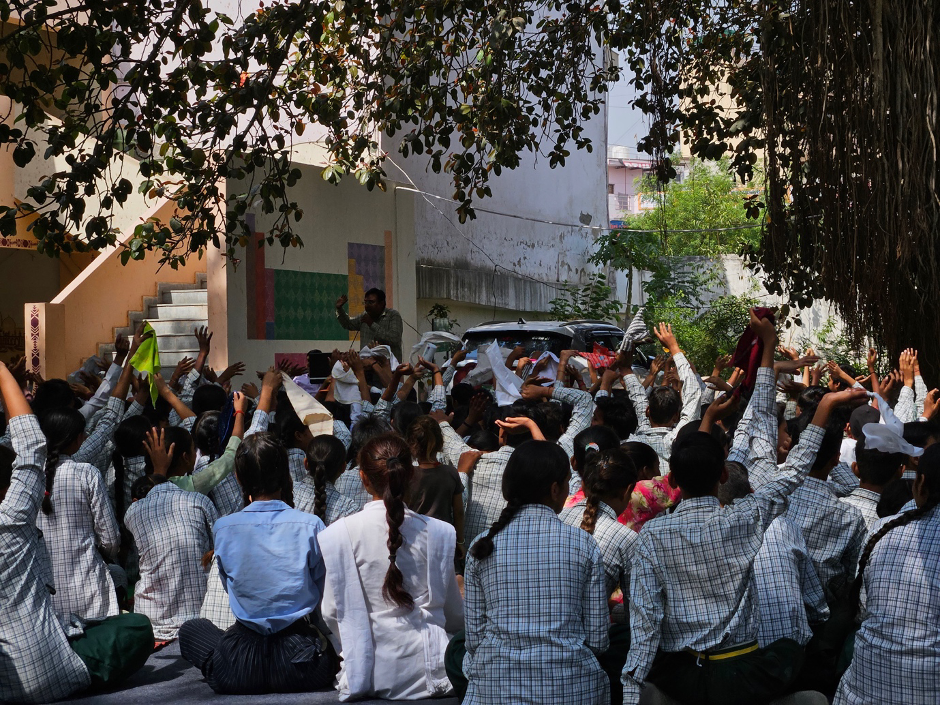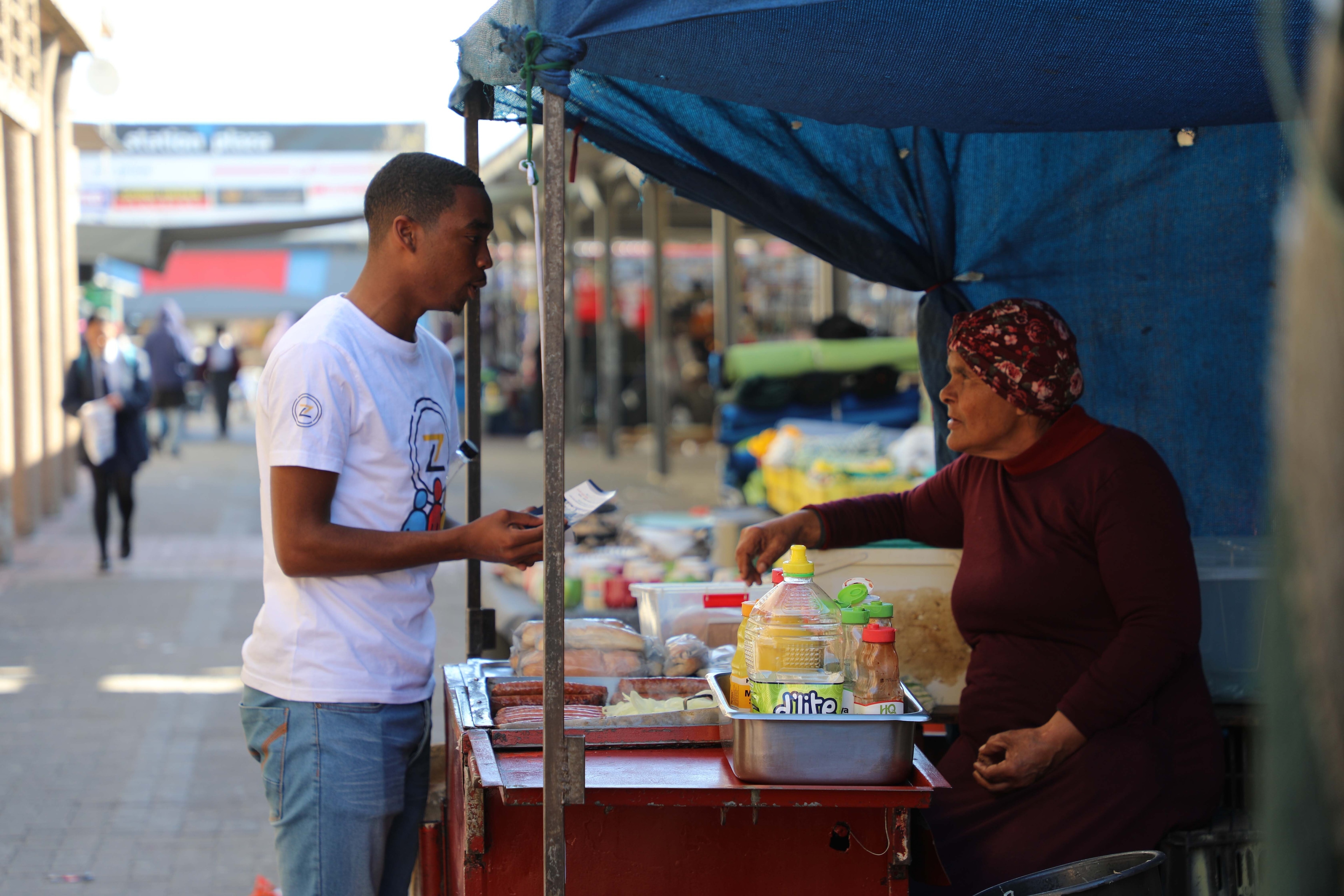International Youth Day: It’s time to empower youth with skills for the future

To mark International Youth Day, the Global Shapers Community is releasing its Annual Report 2022-2023. Image: World Economic Forum
Listen to the article
- To mark International Youth Day on 12 August, the Global Shapers Community is releasing its Annual Report 2022-2023.
- This report outlines the concrete progress 10,000 young innovators, activists and entrepreneurs made over the year to deliver on projects.
- Global Shapers in over 500 cities across more than 150 countries continue to work tirelessly to raise our voices and tackle pressing global issues.
This year's International Youth Day, observed on 12 August, is taking place under the theme "Green Skills for Youth: Towards a Sustainable World".
UN Secretary-General António Guterres defines green skills as the “knowledge, abilities, values and attitudes needed to live in, develop and support sustainable and resource-efficient societies, economies and communities.”
Green jobs, and a workforce with the skills to fill them, are essential for meeting climate targets. New LinkedIn data in the World Economic Forum’s Future of Jobs 2023 report shows that hiring for green roles consistently outpaced the overall hiring rate globally for four years in a row.
At this moment, young generations know that climate change is undeniably upon us. Its effects have already displaced millions of youth in search of new beginnings and is radically shifting labour markets, with millions of youth having left or lost jobs with unprecedented disruption in recent years.
Today, 33% of the unemployed population globally is youth. Young people are also more likely to be in precarious work. According to International Labour Organization data, young employees are twice as likely as adult workers to live in extreme poverty or be informally employed with little or no social protection.
Even in the best of times, young people are among the least represented in political institutions and face severe disadvantages in labour markets. Worse, during crises like the COVID-19 pandemic or today’s polycrisis, young people suffer disproportionately and recover slower than other age groups.
Yet when we survey young people – including the World Economic Forum’s network of 10,000 changemakers under the age of 30 – youth look to the future with hope and optimism. Despite significant barriers and challenges, young people work tirelessly to speak up and take action.
Global Shapers Community
To mark International Youth Day, the Global Shapers Community is releasing its Annual Report 2022-20223. This report outlines the concrete progress that young innovators, activists, organizers and entrepreneurs made over the past year in more than 500 cities and 150 countries and territories.
When it comes to climate change, it is undeniable that young people’s actions have moved the dial on the perceived urgency of the crisis. Youth are not only taking to the streets to hold leaders accountable, but they’re also spearheading just and sustainable climate solutions in communities.
Take for example, the Rio de Janeiro Hub in Brazil. Here, young innovators are creating urban agroecology spaces in favelas to achieve food security and advance social justice. In Pakistan's Karachi Hub, young activists are calling out the disproportionate impact of climate change on frontline communities and shifting perceptions and behaviours to reduce emissions and waste.
In Tshwane Hub, South Africa, young volunteers lead green workforce development opportunities and build skills to mobilize against environmental injustice. In Surat Hub, India, Global Shapers are calling for low-carbon or no-carbon zones in urban areas to advance clean energy alternatives and harness the power of nature to reduce carbon pollution.
What is a Global Shaper?
Each of these examples demonstrates the power of youth in action. Let us remember on International Youth Day that the call for green skills for youth must be met with the recognition that young people are already leading the way. Youth are redefining how we live and work – driven by a shared commitment to sustainability, resiliency and inclusivity.
Young people have the knowledge and diverse lived experiences of climate change and uniquely recognize our own intersectional identities. Young people represent Indigenous Peoples, peoples with disabilities, refugees and migrants, young women and LGBTQI+ communities, and uphold that the fight for climate justice is a fight for social justice at large.
Changemakers of today
Green skills development is critical to ensure young people’s integration into current and future labour markets, but it must be met with long-term economic and political participation.
Youth are not the leaders of tomorrow. They are the changemakers of today and warrant an equal say.
To challenge the status quo and deliver the kind of empowerment that will bring transformational change, young people need access to green skills and jobs, as well as representation in formal decision-making spaces, to harness the power and influence over our lives and our shared future. This can only be achieved through a coherent multistakeholder approach that rectifies systemic inequalities and expands opportunities for all.
Comprehensive training and education systems capable of building a resilient future are critical, along with national action plans that advance youth employment and youth social protections. More recognition and support are needed for youth-led organizations locally and nationally, as well as the development of targeted youth strategies and policies by establishing accountable, inclusive and diverse youth engagement mechanisms.
Introducing youth councils, coalitions and committees will give the youth meaningful platforms to engage with each other and those in power. This must be our priority on International Youth Day. The future should be shaped by those who will live in it – let’s build it together.
The Global Shapers Community is committed to providing a platform for young people to engage with each other, and those in power, to establish intergenerational solutions to pressing global and local challenges.
Don't miss any update on this topic
Create a free account and access your personalized content collection with our latest publications and analyses.
License and Republishing
World Economic Forum articles may be republished in accordance with the Creative Commons Attribution-NonCommercial-NoDerivatives 4.0 International Public License, and in accordance with our Terms of Use.
The views expressed in this article are those of the author alone and not the World Economic Forum.
Stay up to date:
Youth Perspectives
Forum Stories newsletter
Bringing you weekly curated insights and analysis on the global issues that matter.
More on Youth PerspectivesSee all
Christie Burley and Inés Yábar
November 5, 2025







